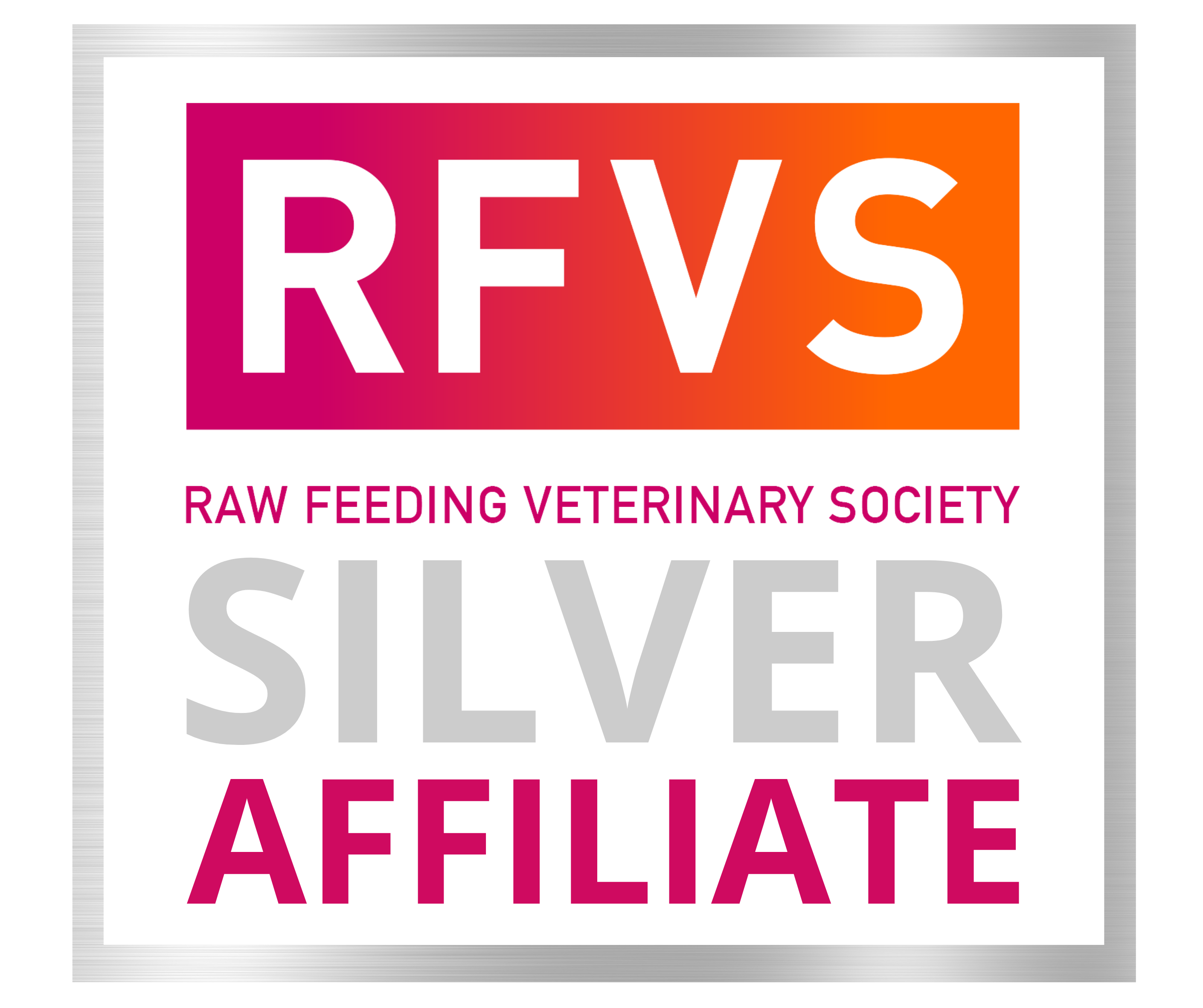Bone Feeding Guide

WE LOVE RAW MEATY BONES!
We encourage feeding raw meaty bones to fully raw fed cats and dogs. Meaty bones provide cats and dogs with behavioural stimulation, dental benefits and appropriate nutrition - plus they love them! Bones can also be a very cost effective way to feed a large dog. We have a range of bones to suit different sizes of cats and dogs, all sourced from wild (such as wallaby pieces and rabbit shoulders) or free range sources (like chicken frames and turkey necks).
Young puppies and kittens, and animal new to Raw Essentials, generally won't eat bones straight away. Our experts will advise when to introduce bones into their diets. Before you start feeding bones, please talk to our staff in-store or online and consider the following advice.
Size and Type of Bone
Dogs and cats need to rip, tear and chew to get the full benefit of raw meaty bones. Choose bones with plenty of meat or soft tissue on them.
Not Too Small
Bones should be small enough to be chewed and crunched but not so small that they could be swallowed whole. Too small bones can be a choking hazard and cause oral trauma.
Not Too Big
Avoid large, heavy bones (e.g. cannon bones) as they could fracture teeth.
Never Cooked
Never feed cooked bones to your dog or cat, they can splinter easily and are very dangerous.
Balance Bones With Rest of Diet
Raw meaty bones are not a complete diet on their own. To ensure you're feeding a balanced raw diet, feed a variety of prey sources along with tripe and organs.
Digestion and Green Tripe
To aid the digestion of the bone, we advise adding green tripe, which is a prebiotic and probiotic. Tripe should generally contribute a quarter to a third of meals.
Bones Are Not For Every Pet
Old, sick, pregnant, lactating and medicated pets may not be able to digest whole bones. Please talk to one of our team before you start feeding raw meaty bones to animal in these categories. Pets with a history of restorative dental work or dental issues may need to avoid whole bones altogether.
Don't Leave Alone with a Bone
Always supervise your dog or cat when you've given them a bone. Avoid situations where a dog might gulp their bone. We recommend separating even the best of dog-friends when they've got exciting bones in their grasp.
Brachycephalic Breeds Take Care
Brachycephalic breeds (those with shortened heads such as Pugs, French Bulldogs, Bull Mastiffs) do really well on a raw food diet, but they may struggle with whole bones. Be sure to talk to our team for more information.
